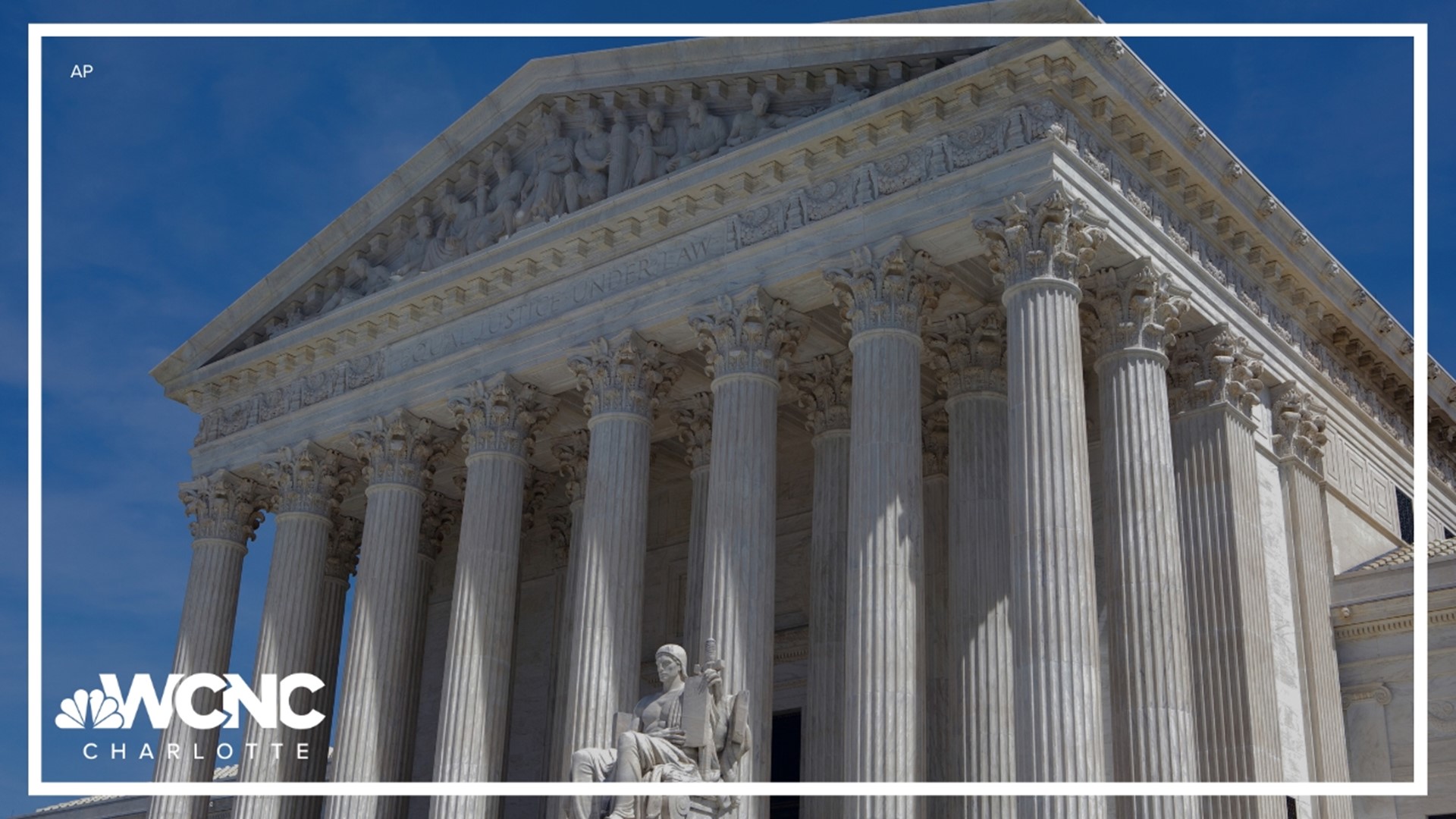WASHINGTON D.C., DC — The Supreme Court agreed Friday to review lower-court rulings that make it harder for cities in the western United States to prevent people from sleeping on the streets when there aren’t enough beds in homeless shelters.
The justices will hear an appeal from the city of Grants Pass, in southwest Oregon, that has the backing of California Gov. Gavin Newsom, a Democrat, as well as other Democratic and Republican elected officials who have struggled to deal with homelessness brought on by rising housing costs and income inequality.
The court's action comes a day after a panel of the 9th U.S. Circuit Court of Appeals affirmed a lower-court ruling blocking anti-camping ordinances in San Francisco, where Newsom once was the mayor.
Homelessness across the country continues to be a growing concern. Across the U.S. the federal count of homeless people reached 580,000 in 2023.
In Gaston County, the number is about 250.
Gastonia City Councilmember Robert Kellogg understands the concerns but stresses there’s more to the issue than just city leaders aiming to punish those in need.
“I think they're concerned about their community," Kellogg said. "They're worried about public health challenges and are worried about public safety. So it's more than just a soundbite.”
A separate 9th circuit panel ruled in the Oregon case that Grants Pass could not enforce local ordinances that prohibit homeless people “from using a blanket, pillow, or cardboard box for protection from the elements.” The decision applies across nine western states, Alaska, Arizona, California, Hawaii, Idaho, Montana, Nevada, Oregon and Washington.
The two rulings, like a 2018 decision from the 9th circuit in a case from Boise, Idaho, found that punishing people for sleeping on the streets when no alternative shelter is available amounts to “cruel and unusual punishment” in violation of the Constitution.
Punishments could include fines and exclusion orders barring people from public property.
Previous court rules found that punishing people for sleeping on the streets when no alternative shelter is available amounts to “cruel and unusual punishment” in violation of the Constitution.
Kellogg is optimistic that lawmakers and homeless advocates can find common ground and help tackle the crisis.
“I don't think this is hopeless, you know, solving the challenge of homelessness is not hopeless, it becomes hopeless when we divide it, and we refuse to come together and work on it," Kellogg said.
Elected officials urged the justices to take up the case because they say the rulings complicate their efforts to clear tent encampments, which have long existed in West Coast cities, but have more recently become more common across the U.S. The federal count of homeless people reached 580,000 last year, driven by a lack of affordable housing, a pandemic that economically wrecked households, and a lack of access to mental health and addiction treatment.
“The Supreme Court can now correct course and end the costly delays from lawsuits that have plagued our efforts to clear encampments and deliver services to those in need,” Newsom said in a statement.
Theane Evangelis, a lawyer for Grants Pass, said in a statement that the appellate decisions "are actually harming the very people they purport to protect.”
Homeless people and their advocates say the sweeps are cruel and a waste of taxpayer money. They say the answer is more housing, not crackdowns.
“The issue before the Court is whether cities can punish homeless residents simply for existing without access to shelter," Ed Johnson, a lawyer for homeless people who challenged the Grants Pass ordinances, said in a statement. “Nevertheless, some politicians and others are cynically and falsely blaming the judiciary for the homelessness crisis to distract the public and deflect blame for years of failed policies.”
It's unclear whether the case will be argued in the spring or the fall.

